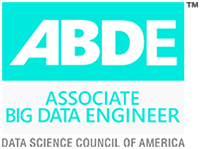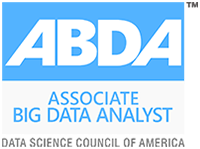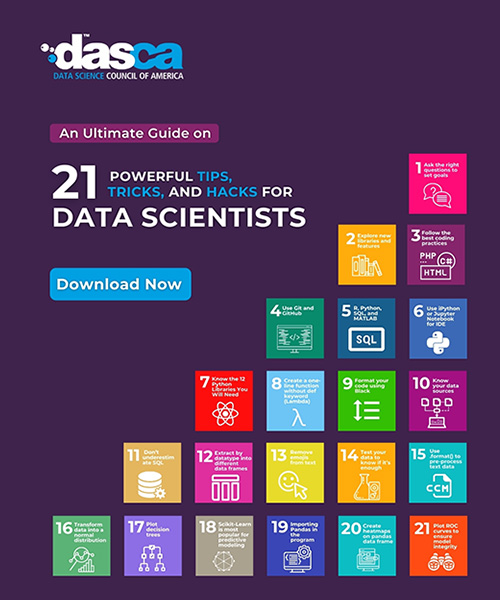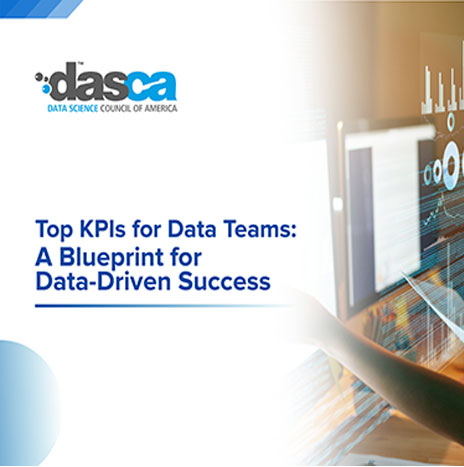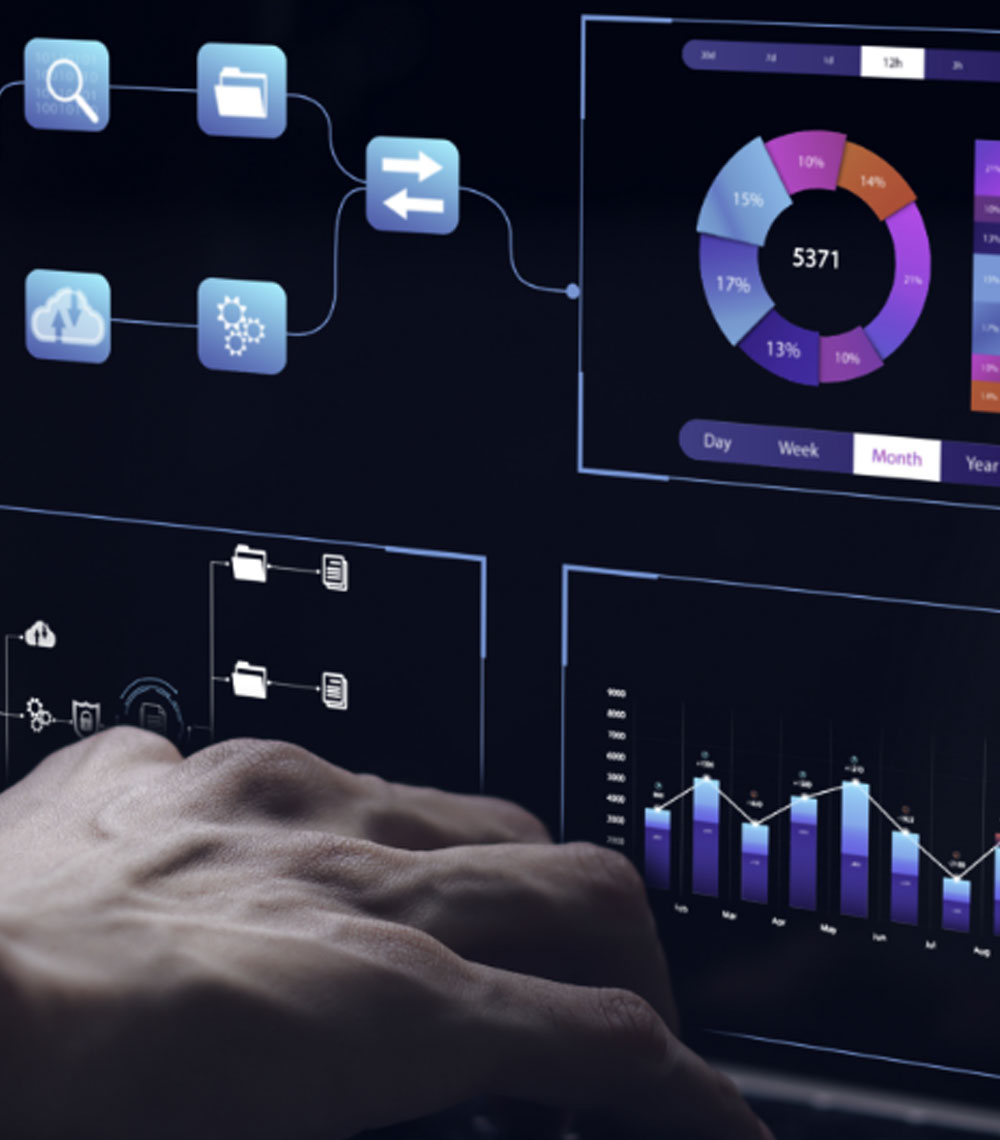
Data is the linchpin for decision-making and innovation, and one of the key players in transforming raw data into actionable insights is data science. The growing recognition of the immense value in data processing and analysis highlights the pivotal role of data scientists.
Last year, McKinsey projected that
- Healthcare spending is set to increase from 300 billion USD to 450 billion USD (12-17% of 2.6 trillion USD baseline).
- Bad data's annual impact is staggering 3.1trillion USD in the US.
Despite the industry's allure and the perception of data science professionals as modern-day superheroes, many executives remain unaware of the invaluable contributions these professionals make to an organization. In this blog, we will walk you through the significance of data science in the business realm, exploring its functions, impact, and strategies to harness its potential.
Understanding Data Science and Its Operations
At its core, data science is the art and science of extracting meaningful insights from raw data. Data scientists employ a multifaceted approach, combining statistical analysis, machine learning algorithms, and domain expertise to uncover patterns and trends. This process involves collecting vast amounts of data, cleaning and preprocessing it, and utilizing advanced analytics to draw actionable conclusions. The iterative nature of data science ensures a continuous refinement of models and predictions, making it a dynamic and adaptive tool for businesses.
How Does Data Science Impact Businesses?
Data science transforms businesses in myriad ways. Incorporating data science skills into business practices reaps significant benefits, elevating productivity, decision-making, and product development. Data-driven decision-making, facilitated by skilled data scientists, effectively mitigates risks, minimizes errors, and employs machine learning algorithms for fraud detection. Organizations leverage performance measurement and trend analysis, informed by data science skills, to make strategic decisions and optimize operations.
This data-centric approach extends to product development, aligning offerings with audience preferences and ensuring success in the market. Efficient daily operations and workload management are streamlined through workplace data collection while manufacturing data helps identify inefficiencies and optimize production processes.
Data science tools are instrumental in predicting future trends, identifying risks, and uncovering growth opportunities. Executives, armed with data science skills and certifications, can adapt operations based on predictive outcomes and statistical analyses. Enhanced customer experiences, driven by insights into preferences and habits, enable businesses to tailor products and establish a brand that resonates with their target market.
Five Strategies to Improve Your Business with Data Science
Effective data collection and analysis can propel a business forward, while inaccurate or poor-quality data can lead to unnecessary expenses. Here are the top five strategies to improve your business with data science skills and tools.
- 01. Informed Decision-Making Empowerment: Embracing data-driven decision-making empowers businesses to focus on pertinent information for improved resolutions. This approach enhances employee engagement, fosters organizational responsibility, and promotes transparency. Data science skills prove invaluable in addressing challenges related to business expansion, financial management, sales and marketing strategies, and service quality enhancement.
- 02. Goal Definition Based on Trends: Identifying trends through data analysis elevates institutional performance, enhances client engagement, and ultimately boosts profitability. By harnessing insights from various search engines, businesses can strategically define goals aligned with market trends.
- 03. Team Training and Insights: Data science professionals facilitate the swift discovery of insights beneficial to the workforce. The acquired data can be disseminated through websites or permanent records, enabling staff members to access valuable information at any time.
- 04. Process Automation Efficiency: Automation, achieved through the extraction, generation, or interpretation of content, saves time and resources. In the era of vast data warehouses with unstructured information, automation becomes crucial for efficient business processes.
- 05. Product Enhancement and Personalization: Employing data science tools allows businesses to reach their target market with improved products or services. This can be achieved through customization to cater to individual preferences or by offering unique usage methods, thereby enhancing the overall product offering.
Significance of Data Science Tools in Business
Data science tools are the catalysts that enable skilled professionals with data science certifications to transform raw data into actionable insights.
- These tools enable businesses to analyze vast datasets, automate processes, and extract valuable insights for strategic planning. The ability to personalize customer experiences through data analysis enhances satisfaction and loyalty. Additionally, data science tools foster innovation in product development, ensuring businesses stay relevant and competitive in dynamic markets.
- These data science tools range from programming languages like Python and R to advanced analytics platforms, help data scientists to integrate the right tools into the business workflow enhance productivity, accelerate analysis, and ensure the efficient utilization of data resources. Overall, the adoption of data science tools empowers businesses to navigate complexities, make proactive decisions, and optimize operations for sustained success.
- Stay relevant and competitive in dynamic markets. Overall, the adoption of data science tools empowers businesses to navigate complexities, make proactive decisions, and optimize operations for sustained success.
Four Examples That Show How Data Science Helps Your Business
Data science has proven its worth across various industries. The application of data science spans various industries, demonstrating its universal relevance. These examples illustrate the versatility and impact of data science on diverse business sectors.
-
Predictive Analytics for Sales
- Benefit: Optimized inventory and increased revenue.
- Example: Forecasting future sales with historical data and market trends.
-
Customer Segmentation for Personalization
- Benefit: Enhanced customer experience and targeted marketing.
- Example: Using data science to segment customers for personalized strategies.
-
Fraud Detection in Financial Transactions
- Benefit: Increased security and trust.
- Example: Real-time analysis to detect and prevent fraudulent activities.
-
Supply Chain Optimization with Predictive Maintenance
- Benefit: Reduced downtime and operational costs.
- Example: Predictive maintenance based on data analysis for proactive equipment upkeep.
End Note
The adoption of data science is no longer a choice but a necessity for businesses aiming to thrive in this digital age. The ability to turn raw data into actionable insights provides a competitive advantage, enabling organizations to adapt to dynamic market conditions and make informed decisions. Embracing the power of data science is not merely an option; it is the key to unlocking the full potential of your business.






